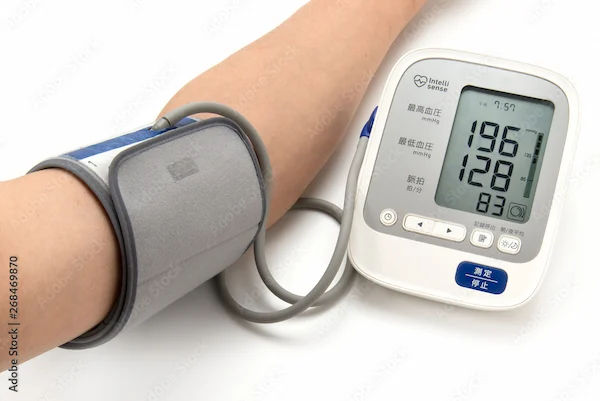What Tests to Take for Long-Lasting Cough and Cold: A Complete Guide for Adults After Illness
Dealing with a cough that won't go away? Learn which tests—CBC, CRP, ESR, chest X-ray—can help diagnose post-viral issues. Book test packages via Apollo 24|7.

Written by
Last updated on 1st Aug, 2025

What Tests to Take for Long-Lasting Cough and Cold: A Complete Guide for Adults After Illness
Cough and cold are common occurrences, especially during seasonal changes, flu outbreaks, or exposure to allergens. In most cases, these symptoms resolve within a few days to a week. When a cold or cough persists beyond 10–14 days, however, there may be a sign of a worse development, such as a secondary infection, chronic inflammation, or post-viral complications such as bronchitis or pneumonia. For adult individuals convalescing after a recent viral infection or residual symptoms, recognising how to follow through with appropriate tests is paramount in obtaining proper treatment. This comprehensive guide covers most diagnostic tools utilised for chronic cold and cough, with a specific focus on CRP, ESR, WBC count, and chest X-ray. These diagnostic tests are particularly valuable for discovering latent infection or post-viral complications, especially among older or immunocompromised individuals.
We’ll also explore the importance of a post viral infection panel, how to interpret test results, and which lab packages, such as those from Apollo 24|7, can help you manage your health efficiently during recovery.
Why Are Tests Important for Persistent Cough and Cold?
A prolonged cough or lingering cold symptoms can indicate more than just a lingering viral infection. Some common causes of long-lasting symptoms include:
- Post-viral bronchitis
- Bacterial superinfection
- Allergic rhinitis or sinusitis
- Lower respiratory tract infections (like pneumonia)
- Tuberculosis (in high-risk groups)
- COVID-19 or influenza complications
In such cases, physical examination alone may not suffice. A detailed test for cough and cold helps detect ongoing inflammation, determine if a bacterial infection is present, assess lung involvement, and guide the choice of treatment, whether it's antibiotics, anti-inflammatories, or further imaging.
Who Should Get Tested?
You should consider medical tests if you:
- Have a cough lasting more than 10 days
- Experience fever that returns or persists after the initial illness
- Notice green or yellow phlegm
- Feel breathless or fatigued after recovery
- Suffer from chest pain or wheezing
- Recently had COVID-19, flu, or another viral illness
- Have an underlying condition like asthma, diabetes, or heart disease
This applies especially to adults recovering from recent illness, where immune defences may still be weakened.
Most Essential Tests for Long-Lasting Cough and Cold
Here are the core investigations that doctors recommend for evaluating prolonged cough or post-viral complications:
1. CBC (Complete Blood Count)
What it tests: Measures white blood cells (WBCs), red blood cells (RBCs), and platelets.
Why it matters:
- Elevated WBC count may indicate a bacterial infection.
- Low haemoglobin or platelets may point to another underlying condition.
- Neutrophil and lymphocyte ratios can help distinguish between bacterial and viral causes.
Ideal for: First-line evaluation for nearly all cases of prolonged cough or post-infection monitoring.
Result time: Within 24 hours
2. CRP (C-Reactive Protein)
What it tests: Inflammation levels in the blood.
Why it matters:
- High CRP levels suggest acute bacterial infection or post-viral inflammation.
- Helps determine whether antibiotics are required or if symptoms are likely to resolve on their own.
Ideal for: Differentiating between viral and bacterial infections post-cold or flu.
Result time: Within 24 hours
3. ESR (Erythrocyte Sedimentation Rate)
What it tests: Measures how quickly red blood cells settle, indicating ongoing inflammation.
Why it matters:
- High ESR levels are associated with respiratory tract inflammation, chronic infection, or even autoimmune issues.
- Useful when cough persists beyond 2 weeks.
Get Your Health Assessed Here
Ideal for: Evaluating chronic inflammation or post-viral recovery state.
Result time: Within 24 hours
4. Chest X-Ray (PA View)
What it checks: Visualises lungs, bronchi, and chest wall.
Why it matters:
- Essential for ruling out pneumonia, bronchitis, lung abscess, or pleural effusion.
- Can help detect complications from a recent flu or COVID-19 infection.
- Also checks for signs of tuberculosis in long-standing cough cases.
Ideal for: Adults with chronic cough, fever, shortness of breath, or chest pain.
Result time: Within 24 hours
5. Additional Tests Based on Symptoms
Depending on the patient’s history and symptom pattern, a doctor may also recommend:
- Sputum Culture and Sensitivity: To detect bacterial lung infections.
- Throat Swab: For streptococcal infections or influenza.
- COVID-19 RT-PCR or Rapid Antigen Test: If reinfection is suspected.
- Allergy Comprehensive Panel: In case of persistent cough due to allergic rhinitis.
When Should You Take a Test?
It’s advisable to take a test for cough and cold if:
- The cough lasts longer than 10–14 days
- You feel worse after initial improvement
- There’s green/yellow mucus or blood in phlegm
- You feel breathless, dizzy, or fatigued
- You have known respiratory issues (e.g., asthma, COPD)
- You've recently recovered from a viral illness but symptoms return
Getting tested early ensures better management and avoids complications.
How to Prepare for These Tests?
Most tests for persistent cough and cold do not require fasting. However, follow these general tips:
- Inform your doctor about any medications or supplements you’re taking.
- Hydrate well, especially before a CBC or other blood tests.
- Carry old reports if you're repeating a test or under follow-up care.
- If undergoing X-ray, wear loose clothing and avoid wearing metallic items.
Interpreting the Results: What They Indicate
Interpreting your test results is a crucial step in understanding your current health status. These results not only reveal potential issues but also guide your doctor in diagnosing conditions and recommending the right treatment. Here's what the numbers could mean for you:
Note: Always consult your doctor for accurate interpretation. Self-reading lab reports may lead to unnecessary anxiety or missed diagnoses.
What to Do After Receiving Test Results?
Receiving your medical test results can bring a mix of relief and concern. Whether the results are normal or indicate a potential issue, knowing what steps to take next is crucial. Here's how to understand your results and move forward with confidence:
- Consult your doctor for clarity: Go through your test results with a qualified physician, ideally one familiar with your medical history, to understand their implications accurately.
- Avoid self-medication: Refrain from starting any treatment on your own, especially with antibiotics, steroids, or other potent drugs, as misuse can worsen your condition.
- Follow prescribed treatment plans: If your results show an infection or other issue, stick to the recommended treatment regimen to ensure proper recovery and avoid complications.
- Proceed with further testing if required: If your doctor suggests additional imaging or lab tests, such as cultures, don’t delay. They can provide vital information for a proper diagnosis.
- Monitor your symptoms closely: Keep a close watch on any changes in your condition, particularly signs like worsening fatigue, breathlessness, or new symptoms, and report them promptly.
Benefits of Apollo 24|7 Test Packages
Apollo offers trusted diagnostic services and combo test packages that are ideal for busy professionals or those recovering at home.
Key benefits:
- NABL-accredited labs: Tests are conducted in NABL-certified laboratories, ensuring high-quality standards, accurate diagnostics, and reliable results you can trust.
- At-home sample collection: Enjoy the convenience of professional sample collection at your doorstep, perfect for those with mobility issues or a busy lifestyle.
- Digital access to results: Get your test reports quickly through the Apollo 24|7 app or via email, making it easy to review and share with your doctor.
- Consultations with doctors: Test packages often include access to physician consultations, helping you understand your results and plan the next steps for your health.
Conclusion
A lingering cough or cold may be more than just an extended viral infection. It can signal post-viral inflammation, secondary bacterial infection, or respiratory complications. Diagnostic tools like CBC, CRP, ESR, and chest X-ray play a vital role in identifying the root cause and guiding timely treatment. The post viral infection panel, available from providers like Apollo 24|7, is particularly useful for adults recovering from illness who continue to experience symptoms. Don’t wait for things to get worse. If your cold or cough hasn’t cleared up, book a test today with Apollo 24|7 and take the first step towards recovery.




.webp)
